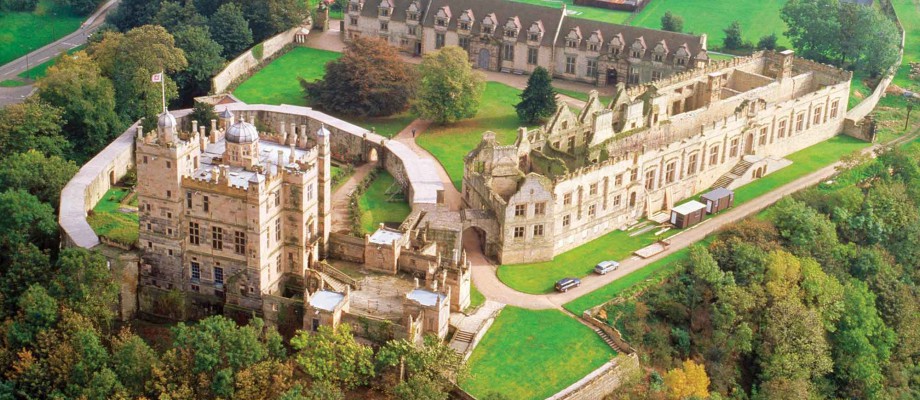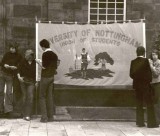
Historic ties to bonds of slavery
November 2nd, 2014
It may be over two hundred years since the abolition of the British slave trade but now untold stories about the trade’s links to stately homes in the East Midlands and Yorkshire have come to light thanks to University researchers and English Heritage.
The research by the School of Geography and Department of History was commissioned by English Heritage and appears in a new book by the organisation, Slavery and the British Country House edited by Madge Dresser and Andrew Hann.
Bolsover Castle in Derbyshire and Brodsworth Hall near Doncaster were studied by Dr Sheryllynne Haggerty from the Department of History and Dr Susanne Seymour from the School of Geography.
Bolsover Castle was owned by the Cavendish and Bentinck families, the dukes of Newcastle and Portland. The researchers focused on the attitudes towards the slave trade and slavery of the third duke of Portland, William Henry Cavendish-Bentinck. He was British Prime Minister twice, in 1783 and from 1807-09 as well as Home Secretary in charge of the British colonies. In contrast, the owner of the old Brodsworth Hall from 1790 was a
French-Swiss-born businessman and financier, Peter Thellusson.
The researchers’ sources included the University’s Portland Collection, which includes the Third Duke’s papers, in its Department of Manuscripts and Special Collections. Dr Haggerty said: “We selected the two properties to investigate different types of landowning interests, aristocratic in the case of Bolsover and mercantile in relation to Brodsworth, and varying types of connection with slavery.”
Dr Seymour added: “Associations of English estate owners with slavery were much more common and complex than has previously been thought. Supporters and abolitionists could even be found within the same family. Communicating these interconnections through exhibitions, displays at country houses and via electronic media promises to create a new openness and understanding of slavery and its various legacies.”
As Home Secretary in the 1790s, Portland supported Britain’s slave-based Caribbean colonies. There is evidence of a Portland stake in slave-based production and although the third duke was not a Caribbean plantation owner or trader, new links were uncovered to Portland cousins who were slave-estate owners.
Peter Thellusson’s amassed a fortune through commerce with slave traders and owners and, when he died in 1797, he owned more than 4,000 acres of land in England. His descendants built new Brodsworth Hall, which is today maintained by English Heritage.
Portland died owing more than £500,000.
Both characters regarded enslaved Africans as a form of property. For Thellusson, they were a commodity to be traded and invested in as a means of accumulating wealth. For Portland, the slaves were a property right and a cornerstone of the British Empire, to be defended against the increasing social and political debates on abolition and ‘the rights of man’.
This new research will help English Heritage promote public understanding of the ways in which the fortunes of the landed elite and their country houses were intertwined with slavery and the slave trade.
Tags: Andrew Hann, Bolsover Castle, Department of History, Dr Sheryllynne Haggerty, Madge Dresser, Peter Thellusson, Portland Collection, Portland Collections, School of Geography, slave trade, Slavery and the British Country House, third duke of Portland, William Henry Cavendish-Bentinck
Comments are closed.
Other Issue 70

Faulty ‘switch’ linked to psychotic symptoms
Scientists have shown that psychotic symptoms experienced by people with schizophrenia could be caused by a […]


